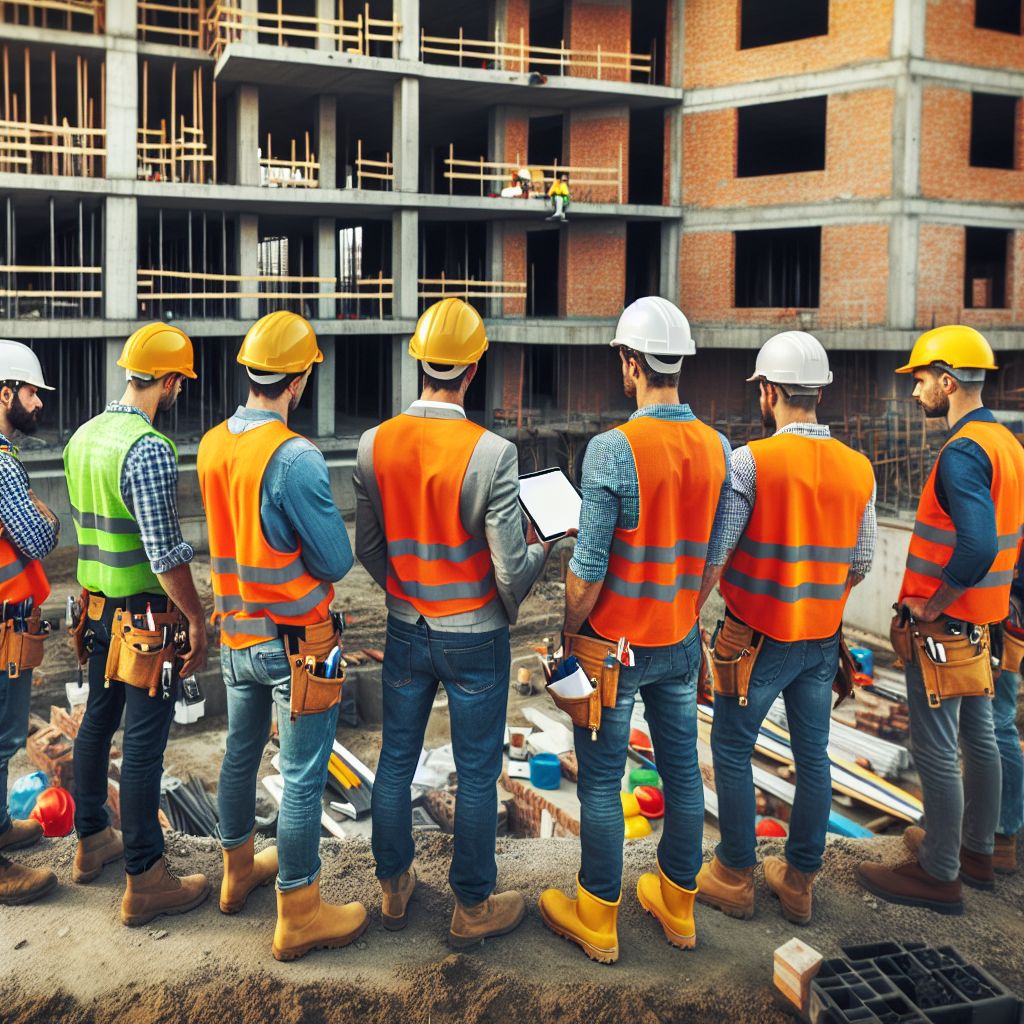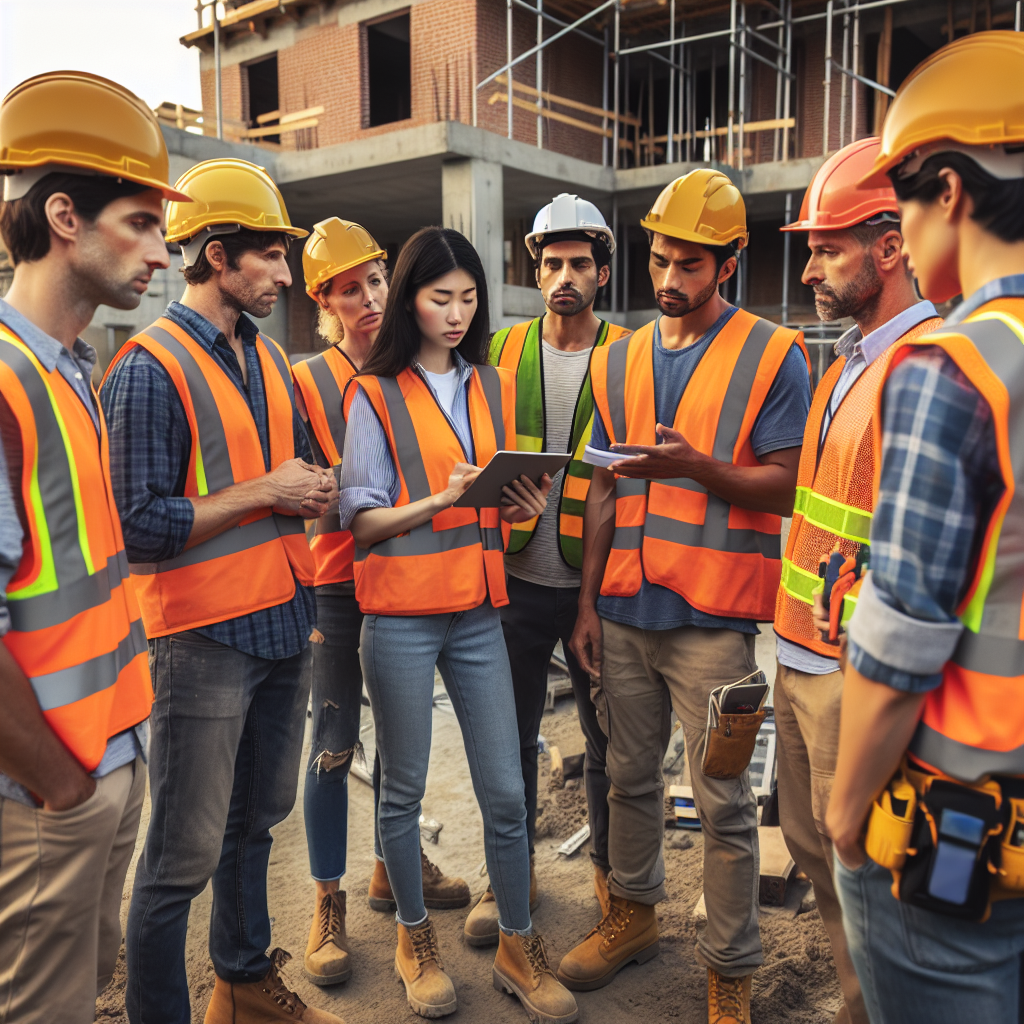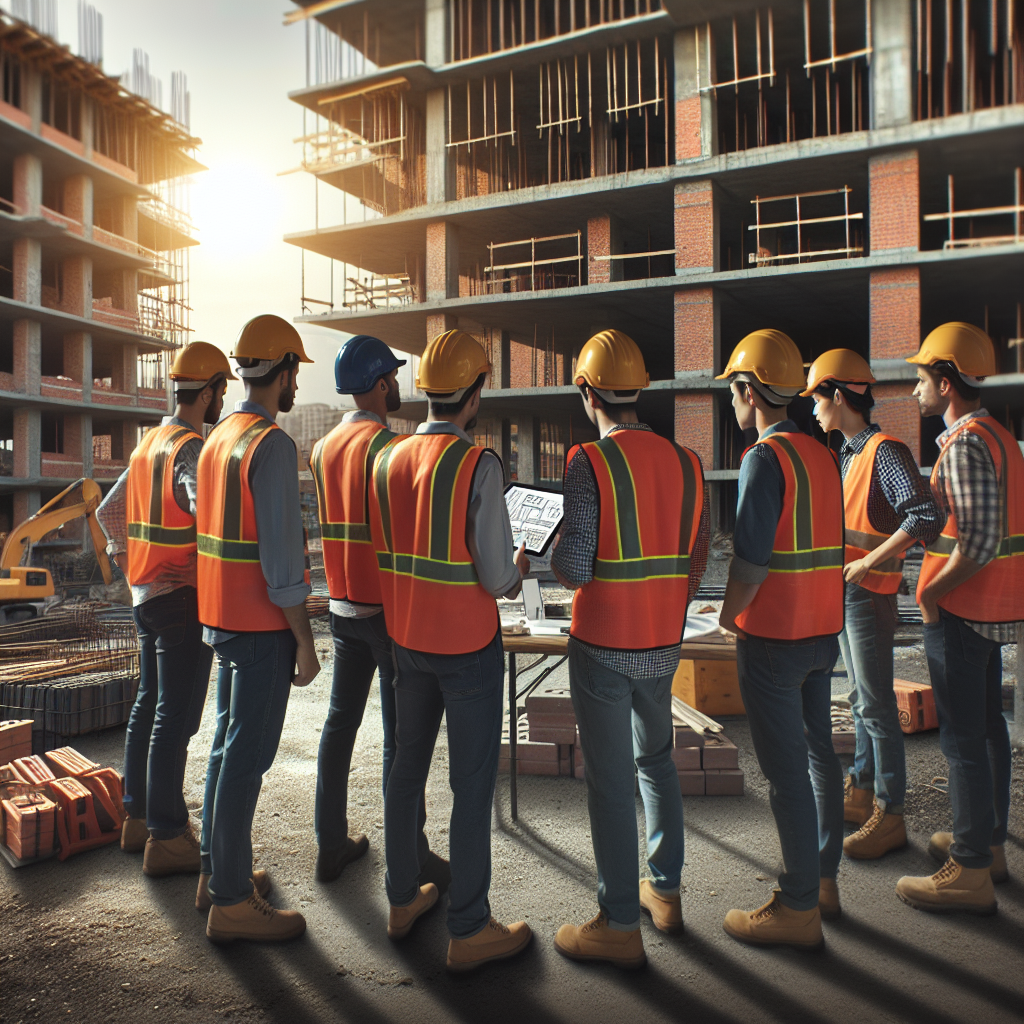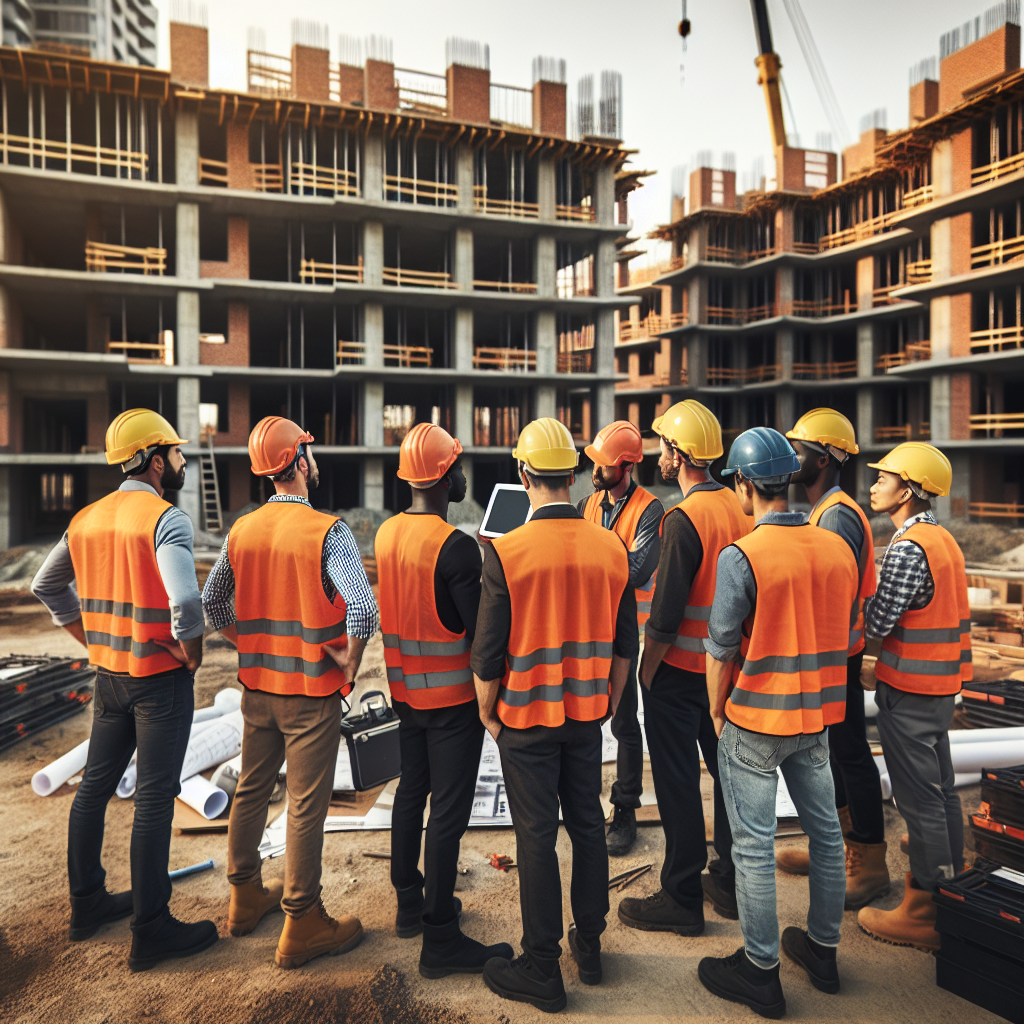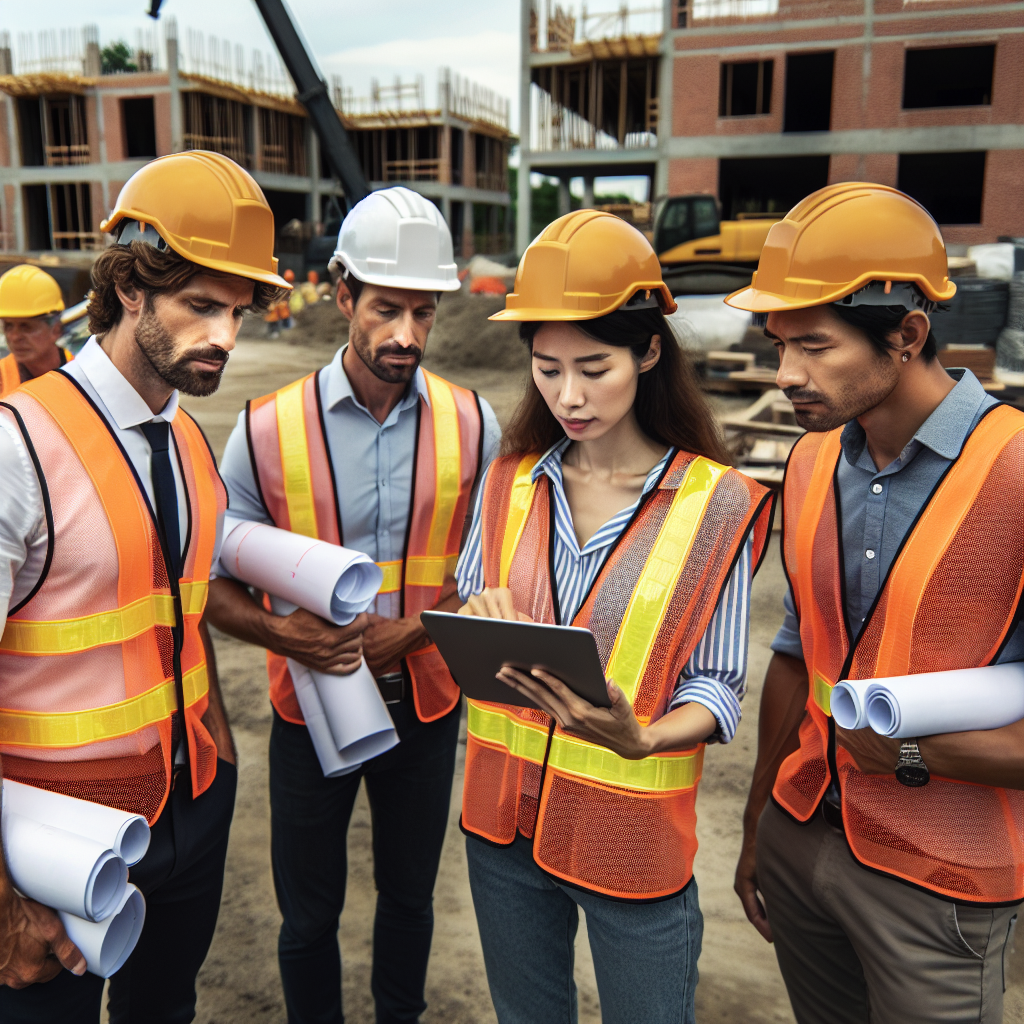The Role of AI in Enhancing Construction Quality Assurance
The construction industry is at the forefront of embracing innovative technologies, with artificial intelligence (AI) standing out as a significant game-changer. As construction projects increasingly integrate construction project management software, the focus on quality assurance has become paramount. Leveraging AI can drastically enhance quality management processes, ensuring projects meet high standards while also being efficient and cost-effective.
Overview of AI in Construction
The construction industry, which spends over $10 trillion annually and is projected to grow by 4.2% until 2023, faces challenges related to project efficiency, quality assurance, and safety. AI is being employed to tackle these challenges, particularly in the realm of construction risk management and quality assurance.
Key Applications of AI in Construction Quality Assurance
Predictive Quality Analytics
One of the most transformative applications of AI in construction quality assurance is the use of predictive quality analytics. AI and machine learning (ML) allow construction projects to anticipate and prevent quality issues before they even arise. By analyzing historical data alongside real-time inputs, AI-driven construction management ensures early intervention in potential defects and inefficiencies, leading to significantly reduced reliance on reactive measures.
Automated Quality Inspections
With construction submittal software and AI-powered visual inspection systems, the quality of construction work can be monitored in real time. These advanced systems utilize high-resolution cameras and sensors to detect defects with unparalleled accuracy compared to human inspectors, who may be prone to error and fatigue. The speed and scalability of these automated inspections greatly enhance the quality control processes, making them vital for any modern construction project.
Real-Time Monitoring and Alerts
Beyond inspections, the application of AI extends to real-time monitoring of construction sites. AI algorithms track interactions between workers, machinery, and materials, alerting supervisors to potential safety issues, construction errors, and productivity challenges. Such proactive monitoring helps address quality issues promptly—an essential aspect of maintaining high construction standards.
Data Analysis and Decision-Making
The power of AI lies in its capacity to analyze vast amounts of data generated during construction. By identifying patterns and predicting quality issues, informed decision-making can occur swiftly, leading to continuous improvements in a project’s quality management processes. This capability is particularly enhanced by integrating AI tools for construction analytics.
Benefits of AI in Construction Quality Assurance
Improved Accuracy
One of the most significant advantages of AI is its ability to boost the accuracy of inspections. The increased precision found in AI-powered systems dramatically reduces the likelihood of oversights inherent in human inspections, thereby enhancing overall construction quality.
Enhanced Efficiency
AI contributes to improved efficiency across various stages of the construction process. By streamlining quality control through automated inspections and predictive analytics, fewer resources and less time are required to identify and rectify quality concerns. This is essential for project timelines, where speed and accuracy need to coexist.
Cost Savings
Identifying and resolving potential quality issues early due to AI’s predictive capabilities leads to cost savings that are non-negotiable in the construction industry. On average, rework costs can account for between 5% and 20% of total project costs; thus, early mitigation can indirectly influence overall project budgeting and financial management effectively.
Safety and Risk Mitigation
AI applications can significantly enhance site safety by proactively monitoring hazards and alerting supervisors to potential risks. This capability not only reduces the likelihood of accidents but also elevates the overall quality of the job-site environment, directly linking safety with quality assurance.
Sustainability
Another innovative aspect of AI in construction is its role in promoting sustainability. AI optimizes construction processes, improves energy efficiency, and facilitates better material selection, thus contributing to more sustainable practices across the industry.
Best Practices for Implementing AI in Construction
Defining Business Applications
The successful adoption of AI technologies hinges on clearly defining the business applications and objectives it is intended to serve. By aligning AI initiatives with organizational goals, construction firms can ensure that new technologies are implemented strategically and effectively.
Managing Data
Effective data management is crucial for maximizing AI’s capabilities. Construction companies need robust systems for the collection, processing, and analysis of large datasets to allow AI to perform at its best.
Building the Right Team
Implementing AI tools in construction requires a skilled team that includes expertise in AI, data science, and construction management. Building such a team reinforces the chances of successful technology adoption.
Establishing Clear Processes
Businesses must develop clear processes for AI adoption, such as data governance and model training protocols, ensuring systems function correctly and continuously improve.
Fostering a Culture of AI Trust
Promoting a culture that embraces AI technologies while ensuring all stakeholders understand their benefits and limitations involves education and engagement, essential components for successful integration.
Emerging Innovations and Future Trends
Integration with IoT and Blockchain
Looking forward, the integration of AI with the Internet of Things (IoT) and blockchain technologies holds promise for creating robust quality management systems. This will enable real-time monitoring of all aspects of the construction process while also providing secure records of quality inspections.
Robotics and Automation
AI in robotics is set to revolutionize the construction sector by automating tasks such as welding, bricklaying, and 3D printing—further enhancing efficiency in construction processes.
Virtual and Augmented Reality
The fusion of AI with virtual and augmented reality will augment the design, planning, and execution phases of construction projects by providing immersive experiences for stakeholders, aiding both education and collaboration.
How Zepth Can Help
Zepth offers a comprehensive suite of tools designed to support the integration of AI within construction projects, focusing on enhancing quality assurance. Here’s how:
- Data Management: Zepth’s platform facilitates the management and analysis of vast data volumes, ensuring AI-driven quality assurance operates on accurate information.
- Process Automation: By leveraging Zepth’s automation capabilities, construction companies can streamline quality control processes, incorporating AI inspections and predictive analytics into everyday workflows.
- Real-Time Monitoring: With Zepth’s real-time monitoring features, AI can alert supervisors to potential quality issues, safety concerns, and operational inefficiencies.
- Decision Support: Zepth’s analytics tools can provide actionable insights when paired with AI, improving decision-making processes throughout the project lifecycle.
By harnessing the capabilities of Zepth, construction companies can effectively utilize AI to enhance quality assurance, improve efficiency, and reduce project costs. Visit Zepth’s website to learn more about how their solutions can support your construction projects.
